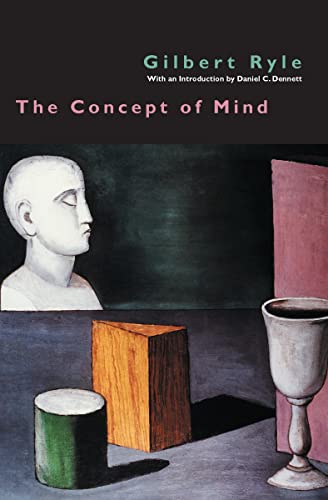The Concept of Mind
Gilbert Ryle
BOOK REVIEW

Every so often, a book emerges that challenges our very understanding of existence and consciousness. The Concept of Mind by Gilbert Ryle is that rare gem, a thought-provoking piece that flings open the door to philosophical discourse with brazenly spoken truths. In a world saturated with superficial perspectives, Ryle's audacity in confronting the 'ghost in the machine' strikes a powerful chord-one that reverberates through the ages.
Ryle detonates a philosophical bombshell by critiquing the Cartesian dualism that has haunted Western philosophy since Descartes. This verbose specter separates the mind from the body, painting a picture of an immaterial entity flitting around in a material vessel. Ryle, with a dazzling rhetorical flourish, dismantles this notion, arguing instead for an understanding of the mind as a set of behaviors and dispositions. 🧠✨️ His assertion that "the mind is not something separate; it is simply the way we talk about behavior" is so revolutionary that it can rattle the complacency of even the most seasoned thinkers.
Reflecting on Ryle's life, one sees the roots of his groundbreaking ideas firmly planted in the fertile ground of his time-mid-20th century England, a period ripe with intellectual upheaval and changing paradigms. The intellectual climate was buzzing with a blend of philosophical inquiry and advancements in psychology, making it a crucible for Ryle's theories. With icons like Wittgenstein breathing down his neck and modernists redefining perception, Ryle's work is both a product of its era and a bold assertion against the status quo.
But it's not just philosophical abstraction here. Ryle's work pulsates with relevance in today's neuro-centric worldview. As we navigate through the burgeoning fields of cognitive science and artificial intelligence, the inquiries posed in The Concept of Mind become urgent. How do we reconcile our understanding of consciousness with the relentless march of technology? Can machines think? Or is thinking truly an exclusively human trait? Ryle dares us to ponder these questions not just in theoretical terms but as a lived reality.
Reader reactions to Ryle's work have swung from awe to skepticism. Some hail it as a seminal philosophical text that invaluable expands our comprehension of what it means to be human. Others voice concerns over its stringent dismissal of the 'inner life'-a critique that Ryle himself anticipated. Critics argue that by reducing the mind to mere behavioral output, Ryle risks underestimating the wealth of internal experience that shapes perception and decision-making. These discussions are not mere academic squabbles; they lay bare a deep-seated fear of relegating the intangible aspects of our existence to mere mechanics. 🚪💭
Ryle masterfully illustrates his ideas through vivid examples, moving from abstract philosophy to the tapestry of everyday life. He prevents his readers from droning through dense theoretical jargon, instead inviting them into a vibrant conversation. His champions find themselves grappling with the challenge of reshaping the very fabric of philosophical dialogue, while his detractors are equally stirred, compelled to defend the nebulous 'mind' against the robust framework offered by Ryle.
Ryle's profound influence reaches far beyond the confines of his book. His philosophies paved the way for later scholars, including thinkers such as Daniel Dennett and Hilary Putnam, who continue to engage with and expand upon his ideas. The dialogue Ryle ignited echoes in contemporary debates about identity and consciousness, leaving us to confront the tension between scientific inquiry and the subjective experience of being.
As you navigate the pages of The Concept of Mind, expect to be swept into a whirlwind of existential reflection. It's not merely a book; it's an invitation to a battle of wits-a crucible where traditional notions meet innovative thought. Prepare to have your mind bent and twisted in ways both exhilarating and unsettling. Will you emerge with a deeper understanding of who we are, or will you find yourself lost in the labyrinthine complexities of existence? 🔍
Regardless of the path you take, one thing is undeniable: Ryle's work is a critical juncture in the intellectual history of the mind. It's essential reading for anyone who dares to ponder the profound questions of existence, consciousness, and the nature of human behavior. Join the conversation that has persisted and will continue to resonate long after the last page. What will you do with the insights gleaned from Ryle's spirited challenge against the constraints of dualism? The journey awaits.
📖 The Concept of Mind
✍ by Gilbert Ryle
🧾 348 pages
2000
#concept #mind #gilbert #ryle #GilbertRyle